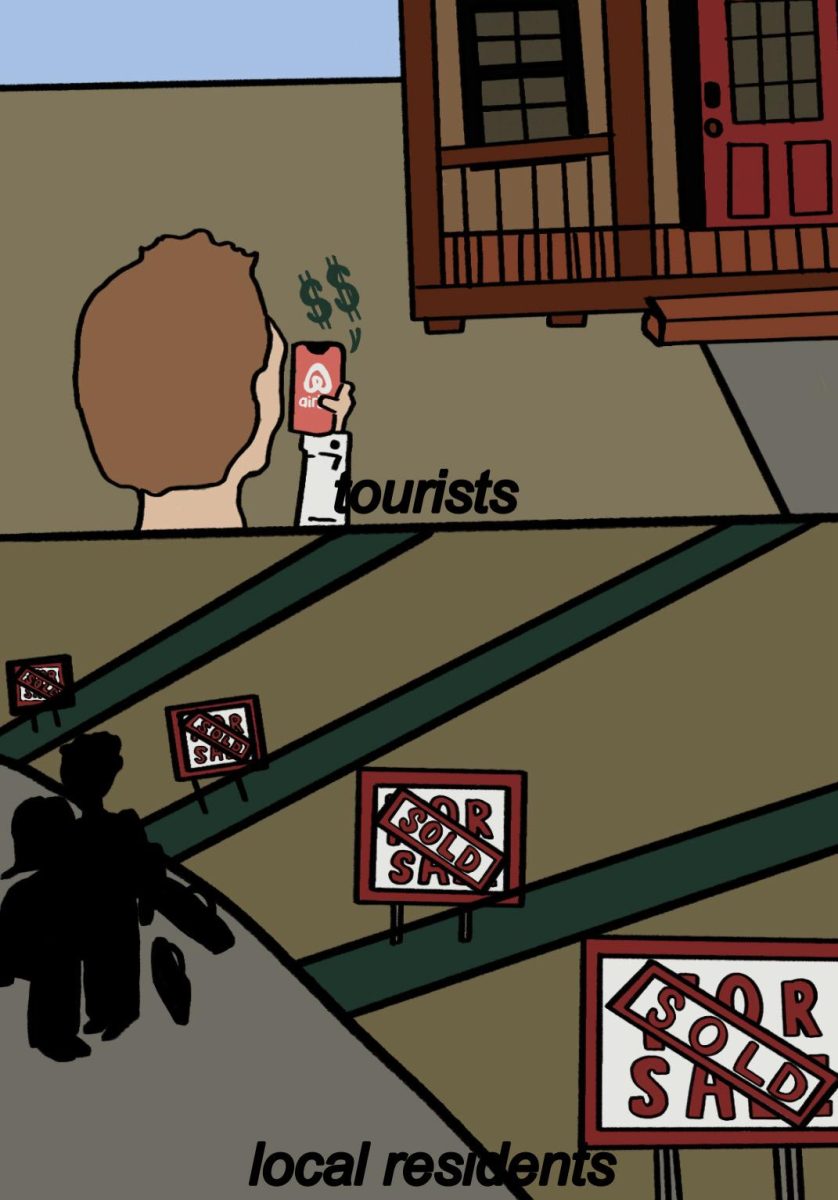When I visited Hawai’i as a child, it was the cerulean ocean and postcard-picturesque shoreline sunsets that I was looking forward to the most. And in many ways those dreams were realized. In every way I knew, Hawai’i was breathtakingly beautiful. But it is beautiful in a way I had never seen before too. It is beautiful because it is a home— and we know that finding a home and calling it one’s own is the most sacred beauty there is. Many Hawaiians have been continually denied that from tourists like the one I once was, staying comfortable in ignorance. The narrative needs to change.
In the late 1800s, Hawai’i was annexed through a coup d’etat from American business owners, continuing the long process of exploitation that had emerged over a century prior from the first mark of European settlement in the area. The impacts of colonialism in Hawai’i had drastic impacts on the size of native populations too. David Swanson presented at the University of Hawaii that the native Hawaiian population shifted from approximately 700,000 to less than 100,000 between 1778, the year the first European settler, Captain James Cook, reached the islands, and 1900 due to factors like colonial epidemic disease. New social and economic systems were instituted as well, like the shift from a communal economy to a capitalist economy.
Those interests and private engagements have built into an emphasis on tourism, another example of other groups being heralded at the expense of the natives of the land. Economically, tourism has been hugely important to Maui, with the Maui Economic Development board saying that around 70 cents for every one dollar from Maui is created through tourism. Yet, corporate interests have irrevocably left their mark on the industry, a mark that will take time to unravel. The management of the hospitality and tourism industries are often by people non-native to Hawai’i, with many of the employment advantages being offered to non-natives instead of those in Hawaii.
“Tourists bring in a lot of money and that keeps a lot of people employed in Hawai’i, so I think the bigger question is if people stopped going to Hawai’i, how would that impact their economy?,” Mrs. Leanne Shine, a Cherry Hill High School East teacher in the business department said.
While tourism is still greatly important for Hawai’i’s economy, there are ways to help shift more economic gains to the community instead of letting the benefits pour out. For instance, tourists can make decisions to support locally owned recreational organizations on their vacation whether it be a local farm or local art studio. This may also help address the cultural commodification that has been a consequence of mass tourism to Hawaii— the commercialization of Hawaii culture for the benefit of tourist interest.
“When we were on Maui we saw lūʻau in the mall, or just anywhere. Because they know they can charge a lot of money… But there are true Hawaiian cultural community centers that are around and I think that is where if you really want to understand the Hawaiian culture, you need to go there,” Shine said.
Tourists that now visit Hawaii have to grapple with embracing the beauty of Hawaii and the dependency of the economy on tourism with ethical considerations of how their actions as tourists will impact local populations.
Yashila Rajagopal (‘24), a recent visitor to Hawai’i this past August, echoed this dilemma.
“I felt like a British person in India… I knew that I was damaging their ecosystem and their land, and there’s definitely places where my hotel, there was probably a bunch of people living there before and then they kicked them out just to build a hotel,” Rajagopal said.
However, by listening to those in the area —their stories and their voices— it can help ensure an authentic truth is made clear about Hawai’i. Tourists have the responsibility to consider the impact they are making on the places they are visiting. That doesn’t necessarily mean to stop traveling to Hawaii, it means traveling responsibly and sustainably. It means putting residents first—helping them protect their own land, economy, and culture— before we go in on our own, taking for our own benefit without recognizing the people who called it a home instead of a destination first.


